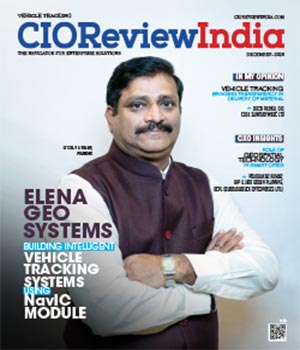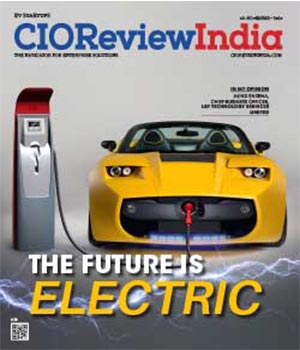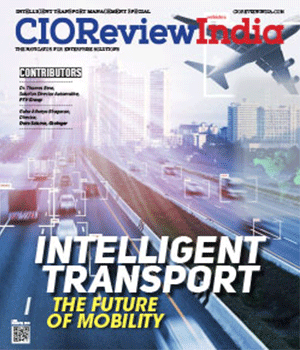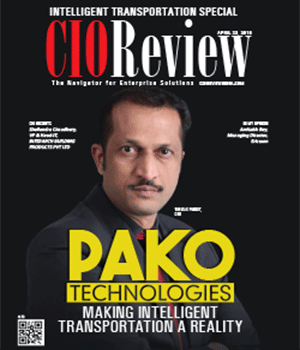
Decoding the Disruptive Impact of Smart Transportation on the Indian Logistics Sector
Huafreed Nasarwanji, Chief Commercial Officer, Gati Ltd | Wednesday, 20 April 2022, 07:36 IST

Conventionally speaking, the Indian logistics industry has been considered as manpower-heavy and characterized by an unorganized structure. It has generally been opined that over the years, a tech-averse outlook has been a key impediment in the sector achieving its optimum potential and retaining a fragmented outlook. However, the onset of the COVID-19 pandemic and the continuing intensification in geopolitical tensions has exposed the vulnerabilities in global supply chains. Added to this, the sustained rise in e-commerce activity has forced global and Indian logistics players to have a relook at their digital strategies and policies, particularly focusing on setting up a robust transport logistics infrastructure at every stage of the supply chain. It has dawned upon industry leaders that they need to have a futuristic vision with an emphasis on digitalization and automation while setting business goals or arriving at business decisions.
Players maintaining large trucking fleetscannot ignore the fact that self-driving vehicles are the future of transport logistics and the future is right here and now. Of course, an Impact Assessment (IA) study of the effect of self-driving vehicles on the job of drivers will need to be undertaken. Nevertheless, the fact exists that the transition from traditional driving to a connected driving ecosystem will need to be undertaken in a phased manner.It is high time that supply chain players undertake trial runs of self-driven vehicles and incorporate them into their fleet on a commercial basis.
The integration of Artificial Intelligence (AI) into transport management systems is key to ensuring the seamless movement of cargo. It also facilitates the mapping of speed-efficient routes by studying traffic patterns and facilitates hassle-free first-mile and last-mile deliveries. With an emphasis on route optimization, AI can play a key role in optimizing cargo transportation costs for supply chain players.
IoT offers greater real-time insights for tracking and reporting routes and delivery schedules and helps companies in analyzing whether trucks are in need of repairs or maintenance through remote monitoring capabilities. This helps in extending the shelf life of the vehicle. By facilitating the provision of real-time data insights, these new-age technologies help supply chain companies in delivering actionable outcomes and arriving at informed business decisions.
Advanced asset tracking technologies and IoT-enabled solutions have exerted a transformational impact on the functional dynamics of smart transport. By facilitating an efficient track and trace mechanism, IoT enables customers to keep a check on the movement of their freight throughout the life cycle of the cargo. Leveraging Radio Frequency Identification (RFID), data can be accessed in a real-time environment, leading to greater transparency in supply chain operations.
Logistics industry players can gain substantial benefits through the inclusion of smart vehicles in their transport fleets. With little or no human intervention, accidents caused by human error are greatly reduced. This greatly improves the safety of vehicular assets and enhances their longevity. It also ensures greater operational efficiency and convenience forcargo movement.
Electric Vehicles (EVs) have rightly been hailed as a game changer for the global transport industry. They come with the promise of substantial economic and ecological benefits for businesses, communities, the country and the world. Logistics companies in the country are increasingly investing in EVs which offer them a sustainable and cost-efficient transportation alternative. The limitation of using EVs lies in the fact that using it for long distances can lead to missed delivery timelines. The large scale use of EVs on a commercial basis can become viable only with the setting up of a robust charging infrastructure in the country. Logistics companies will be encouraged to invest in boosting their EV fleet with the setting up of charging stations at short distances across key roads and highways in the country. With the production of EVs in the country still picking pace, the sole ownership of eco-friendly vehicles by individual companies can be a costly affair. In this context, shared mobility will not only increase the use of EVs among industry players but also ensure a decent Return on Investment (RoI) for funds invested.
Transportation trends around the world are being disrupted at an accelerated pace. Smart transportation is on its way to emerge as the new normal for global and Indian logistics companies. Investing in a smart transportation infrastructure will not only ensure efficient freight movement but also create shorter and agile supply chains for industry players.
CIO Viewpoint
Technologies That Will Boost Digitalisation...
By Sanjay Agrawal, Technology Head, Hitachi Vantara
ISVS Driving The Dream Of A Tech-First World In...
By Vivek Gupta, Senior Director & Country Head, Oracle IaaS & PaaS Services, Oracle
Embrace Total Business Intelligence By...
By Neelesh Kripalani, Chief Technology Officer, Clover Infotech
CXO Insights
Looking Towards Operations Management: What...
By Dr. Vandana Sonwaney, Director, SIOM
Acceleration Of Digital Transformation
By Sudhakar Singh, Managing Editor
Decoding the Disruptive Impact of Smart...










.jpg)
.jpg)









